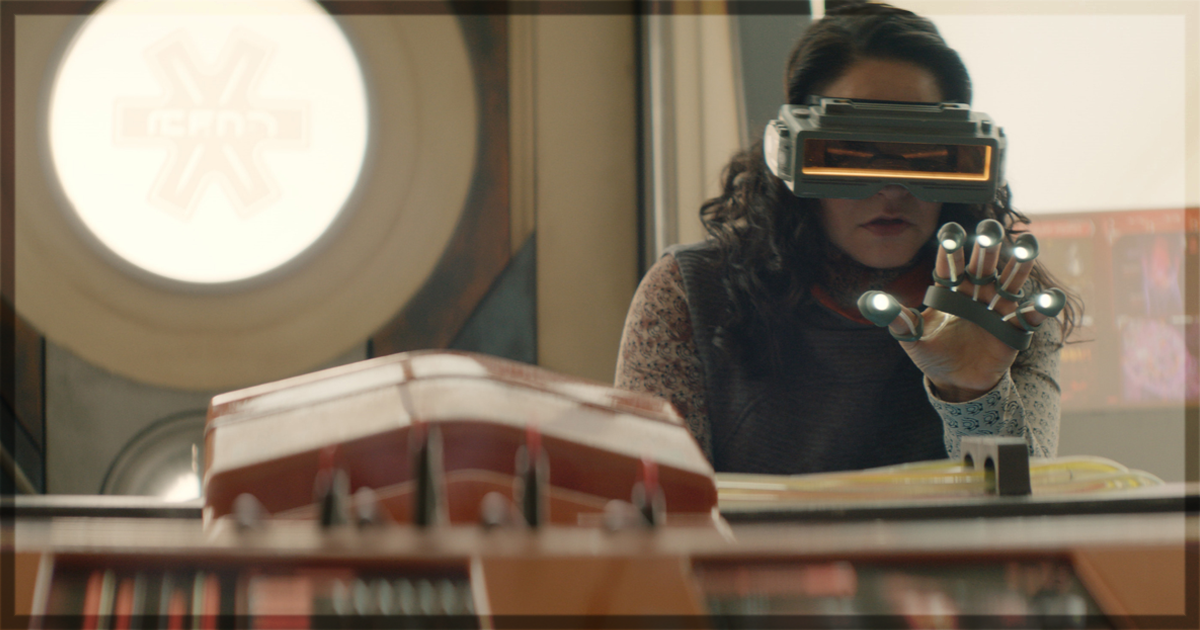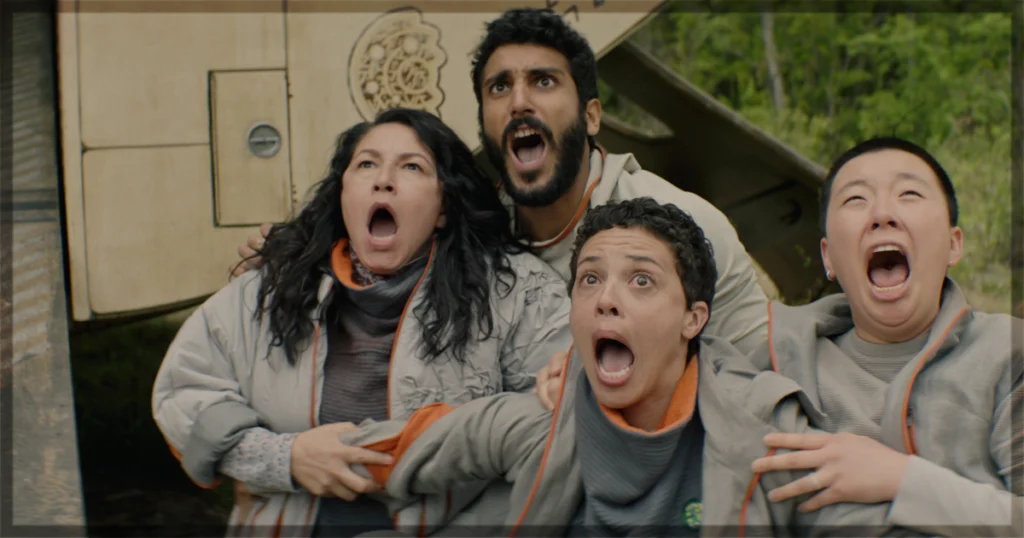Brothers Chris and Paul Weitz are maintaining the breakneck pacing of this show with what seems like the greatest of ease. As the mysterious enemy finally becomes clearer, there is at least enough respite to allow Bharadwaj (Tamara Podemski) to operate on Gurathin (David Dastmalchian), and for the throuple subplot between Ratthi (Akshay Khanna), Pin-Lee (Sabrina Wu) and Arada (Tattiawna Jones) to finally play out. We also get a large – possibly too large – chunk of a “Sanctuary Moon” episode about the consequences when a sentient construct malfunctions. Although it’s also appropriate that Murderbot (Alexander Skarsgård, more on whom later) does not appreciate the parallels between the show it is watching and the life it is living. This isn’t Grey’s Anatomy.
Instead Mensah (Noma Dumezweni) has two new problems. Firstly, the risk posed by the new enemy is so serious that she is going to have to risk her own life to face it. Secondly, the entire team including Mensah do not react well to the news Gurathin learns during surgery. There’s a moment between Murderbot and Gurathin, disturbing for them both, when they realise a way for the augmented Gurathin to endure the surgery without need for painkillers. They can link together, enabling Murderbot to disable Gurathin’s eyes and pain receptors, so during the surgery he doesn’t see or feel a thing. But it also means they can – and do! – rummage around in each other’s memories. What Murderbot sees of Gurathin is mostly highly personal and emotional stuff, which it is entirely unprepared to deal with, but what Gurathin sees of Murderbot is not only his name – at which the entire team recoils – but also what it did to earn that name.
And here is where Mr. Skarsgård does some more exceptional work, with an additional array of expert microexpressions as Murderbot finds itself telling the truth about what it remembers. This might be against its own interests, but tell the truth it does, of its own free will. The respect that Murderbot is showing human emotions – regardless of whether it understands them, and regardless of whether or not it respects them – feels somewhat unusual in current television, especially in television aimed at less mature viewers. How many billions of sitcom episodes are there where the main characters express huge contempt for each other? How unusual is it for genuine affection to be the main through line of a series? And how awful it is that this respect for human feeling is coming from something not human at all?
Because this is what the end of this episode seems to involve: Murderbot realising that not only does it need to help its clients in order to get off the planet, it wants to help its clients survive the trouble they cannot outrun. It is experiencing orders from the inside! That is to say, feelings of its own. And it not only knows what to do with them, it is absorbed by them in ways which it only previously was by its television shows. Is our sentient construct maturing at last? It would seem so; let’s all just hope it lives long enough to reap the rewards of these new lessons.
And isn’t it awesome that the new villain appears to be a woman (played by Amanda Brugel). Yay feminism! This show has really put thought into how the future might manifest in a whole lot of ways.
Murderbot is now streaming on Apple TV+.
Learn more about the show, including how to watch, at the Apple TV+ site for the title.


